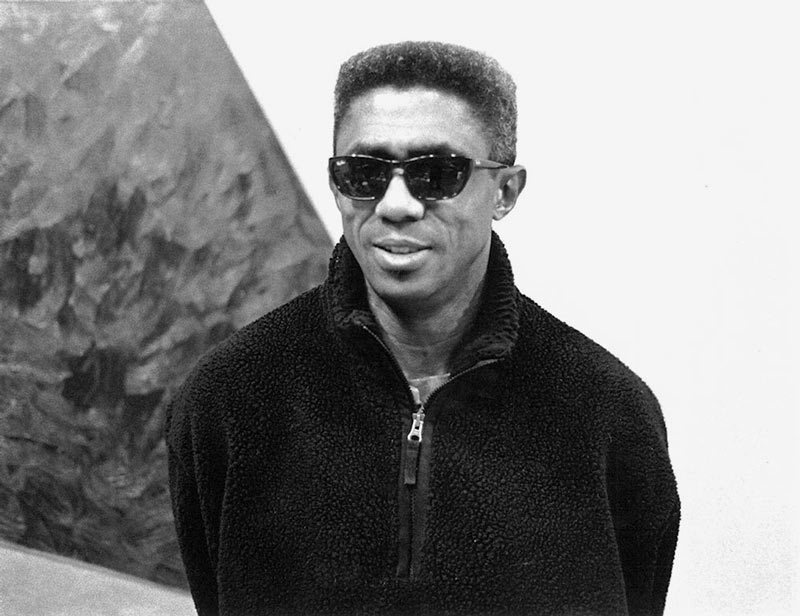James Little has worked nearly half a century at mastering the craft of painting. While our conversation here delves into his painterly “alchemy”—he makes all his own paints and mixes beeswax and varnish into it—it also documents a life in painting. Born into a family of artisans with high expectations in a segregated Memphis, the artist learned the value of hard work, creativity, and persistence. His experimentation with the transformative properties of his materials reflects these emphases, and his search for excellence mirrors the work ethic of the community that raised him. This is to say that memory has its textures and its colors—their own connotative ends; Little’s paintings demonstrate a quest for the perfection of craft, but do not covet certainty despite the precision with which they are ordered. His paintings are guided by intuitive responses to form, color, and feeling. This approach is not overly calculated, though its complexity may suggest so. His expression is personal—visceral exchanges between memory and its hues, between emotion and the logistics of its use, between logic’s place in the fog of the human heart, and the ways that rationale can be envisioned as painterly “surface.” Here, to speak solely of order is to imply, in some way, process, but this implication does not necessarily suggest the course of a method as the ends of his labor’s purpose. Little’s “purpose” cannot be narrowly defined by his methods nor is it all a simple matter of procedure.The imagination has its own speculative ends and its interchanges with the world are, in Little’s paintings, as vibrant and curiously bedecked as any prism thread with light. What follows is a conversation about artistic vision, practice, and the importance of perseverance. It is a document concerned with valuing painting as of form of experiential evidence, and the imagination as a vivid context for human worth, history’s propositions, and a life’s purpose.
— LeRonn P. Brooks
LeRonn P. Brooks So James, I’d like to start by speaking about your childhood in Memphis, before you became an artist. What was the South like when you were a child?
James Little Memphis was a very segregated city when I was growing up in the ’60s. It’s just north of the Mississippi border. My family is from Mississippi. My father, Rogers Little, his family migrated from Georgia. There were a lot of Irish, Native American, and black people in his family. My mother’s family came out of the Carolinas and the West Indies. Somehow, she ended up in Mississippi. That’s where my mother was born along with a lot of her siblings. When I was growing up we were very poor. And my father worked very hard, so did my mother. But we weren’t as poor as the majority of the people around us. You know, we actually lived pretty well. My mother was a great cook. Both my parents grew up growing their own food. They knew how to survive. They were very efficient, hard-working, and God-fearing people. But you know, that was kind of the way it was.
(…)


